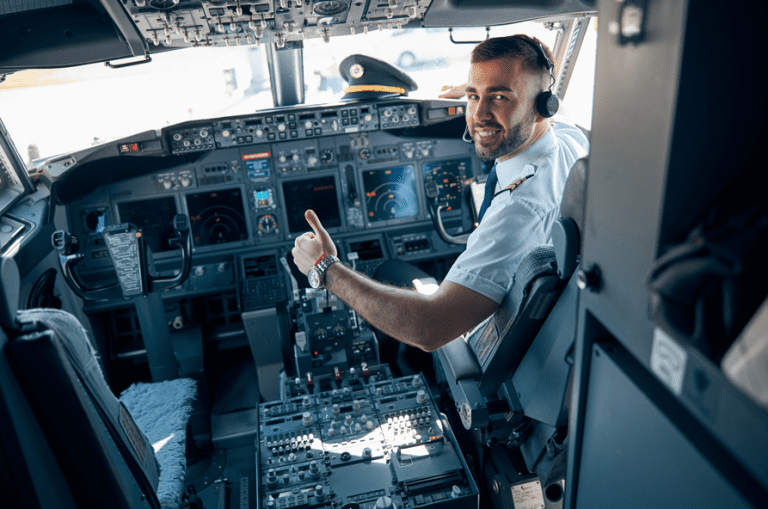In the world of aviation, pilot mental health is a critical component of overall flight safety. The intense nature of the job requires a delicate balance of technical skill and emotional stability. Experts in aviation medicine and mental healthcare dedicate considerable effort to ensure that pilots are physically fit to fly but also psychologically prepared to manage the stresses and responsibilities of air travel. This article explores how professionals evaluate pilot mental health, delving into the various techniques and approaches, and highlighting the integration of modern evaluation systems within the process.
The Unique Demands of Piloting
The role of a pilot extends far beyond controlling an aircraft; it also involves making rapid decisions under pressure, managing prolonged periods of high concentration, and coping with unpredictable challenges in the skies. These responsibilities create an environment in which mental resilience is as essential as technical proficiency. The constant interplay between high-stress situations and the need for rapid problem solving makes pilots particularly susceptible to the effects of stress, anxiety, and other mental health challenges.
Evaluation Techniques and Approaches
A comprehensive evaluation of a pilot’s mental health involves multiple assessment techniques that provide a broader picture of psychological and emotional stability. Clinical interviews serve as a primary method, allowing evaluators to understand the pilot’s personal history, recent experiences, and current state of mind. During these interviews, mental health professionals look for signs of stress, burnout, or any issues that might impair decision-making in critical situations. In addition to interviews, psychological assessments and standardized screening tools help gauge cognitive function, emotional regulation, and coping mechanisms. Observations during simulated flight conditions or stress-inducing scenarios may also play a role in the assessment process, allowing examiners to witness firsthand how a pilot responds under pressure.
Integration of HIMS and AME Evaluations
A pivotal part of the evaluation process is the integration of information from Health Information Management Systems (HIMS) and Aviation Medical Examiners (AME). In one cohesive assessment, experts merge data from HIMS evaluations—which provide a detailed review of a pilot’s historical medical and mental health records—with insights from AME assessments, where a certified examiner conducts in-person evaluations to determine present psychological and physical fitness. This unified approach allows for a thorough review of past trends alongside immediate behavioral and cognitive observations, ensuring that both historical and current factors inform the final decision regarding a pilot’s readiness to operate aircraft safely.
Prioritizing Individualized Assessments
While standardized tests and interviews form the backbone of mental health evaluations, experts also recognize the importance of tailoring these assessments to the individual pilot. Each pilot brings a unique set of life experiences, personal stressors, and coping strategies to the cockpit. Evaluators take these differences into account by considering the pilot’s specific mental health history, the severity and duration of any previous mental health episodes, and the potential impact of current stressors unique to their situation.
Balancing Technical Proficiency and Mental Resilience
A pilot’s technical skills can be honed through training and practice, yet mental resilience often requires continuous monitoring and support. Experts emphasize that even the most experienced pilots may encounter periods of psychological difficulty, particularly during times of rapid change within the industry or personal life disruptions. By evaluating mental health alongside technical proficiency, aviation medical examiners ensure that a pilot’s ability to manage stress is considered as an integral component of their overall fitness.
Mitigating Risks and Supporting Pilot Well-Being
When potential issues arise during a mental health evaluation, proactive measures are implemented to support the pilot while mitigating risks to flight safety. These strategies might involve recommending targeted counseling, stress management techniques, or temporary adjustments to the pilot’s schedule to reduce overwhelming stressors. The aviation industry continually strives to create an environment where pilots feel supported. By offering accessible mental health resources and fostering open communication, airlines and regulatory bodies work together to address any concerns before they escalate into more serious challenges.
Evaluating pilot mental health is a multifaceted process that demands a comprehensive and empathetic approach. Through a combination of clinical interviews, standardized psychological assessments, and the integrated review of both historical and immediate data via HIMS and AME evaluations, experts can form a well-rounded understanding of a pilot’s ability to safely navigate the complex world of air travel. Recognizing the unique pressures faced by pilots, the aviation industry continuously adapts its evaluation methods to emphasize prevention, support, and the overall well-being of its crew. For more information, contact a service provider like Examine Air.


